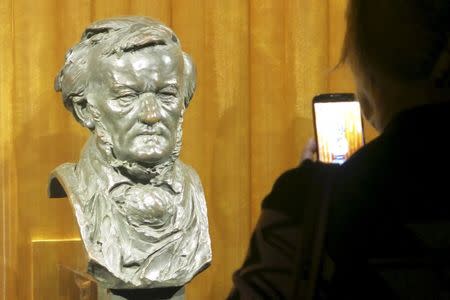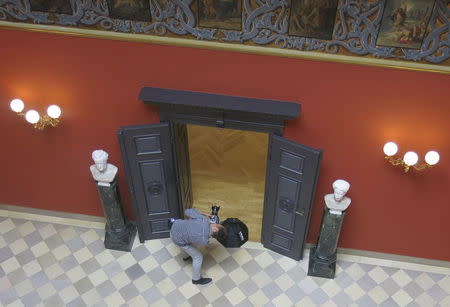Wagner descendant says composer now has museum worthy of him
By Michael Roddy BAYREUTH, Germany (Reuters) - Richard Wagner's great grand-daughter Eva Wagner-Pasquier said she felt overwhelmed with emotion on Sunday at the official opening in Bayreuth of a renovated museum devoted to the 19th-century opera composer, saying it was "finally" worthy of him. Wagner-Pasquier, 70, who is stepping down as co-director of the annual Bayreuth Festival of Wagner operas which opened on Saturday, said she was moved in part by the museum, and by seeing the old family homes she used to live in again. "Finally the people here in Bayreuth understand that this is the most important composer of the world and he has to have a museum and that is done now, so it's great," Wagner-Pasquier told Reuters. The museum, renovated over a five-year period at a cost of 20 million euros ($22 million) includes Wagner's home "Wahnfried" and his son Siegfried's house, plus a new, mostly subterranean building that doubles the size and vastly upgrades a museum that first opened in 1976. For the first time, the museum now exhibits the Wagner's anti-Semitic tracts and includes displays showing his family's close links to Adolph Hitler and the Nazi movement, long after his death in 1883. Several speakers at the opening ceremony mentioned the Wagner family links to Hitler, but Wagner-Pasquier would not be drawn on the subject. "It's very emotional. I don't want to talk about politics today," she said. The family's close ties Hitler, a big Wagner fan who attended the annual Bayreuth festival often, were not addressed when the festival reopened after the war in the early 1950s. These days however, the subject is no longer a taboo. Ann and Burt Korelitz of New York City, who attended the festival opening on Saturday of a new production of "Tristan und Isolde" directed by Wagner-Pasquier's half sister Katharina Wagner, said they were disturbed by Wagner's anti-Semitic statements inscribed on a plaque at the opera house. "It's very difficult, because we are Jewish, to separate the art from the person," Ann Korelitz said. "But I think for me personally there are many horrible people who are great artists and somehow or other you have to appreciate the art." "I describe him (Wagner) as god and the devil in one person," her husband added. (Editing by Raissa Kasolowsky)

